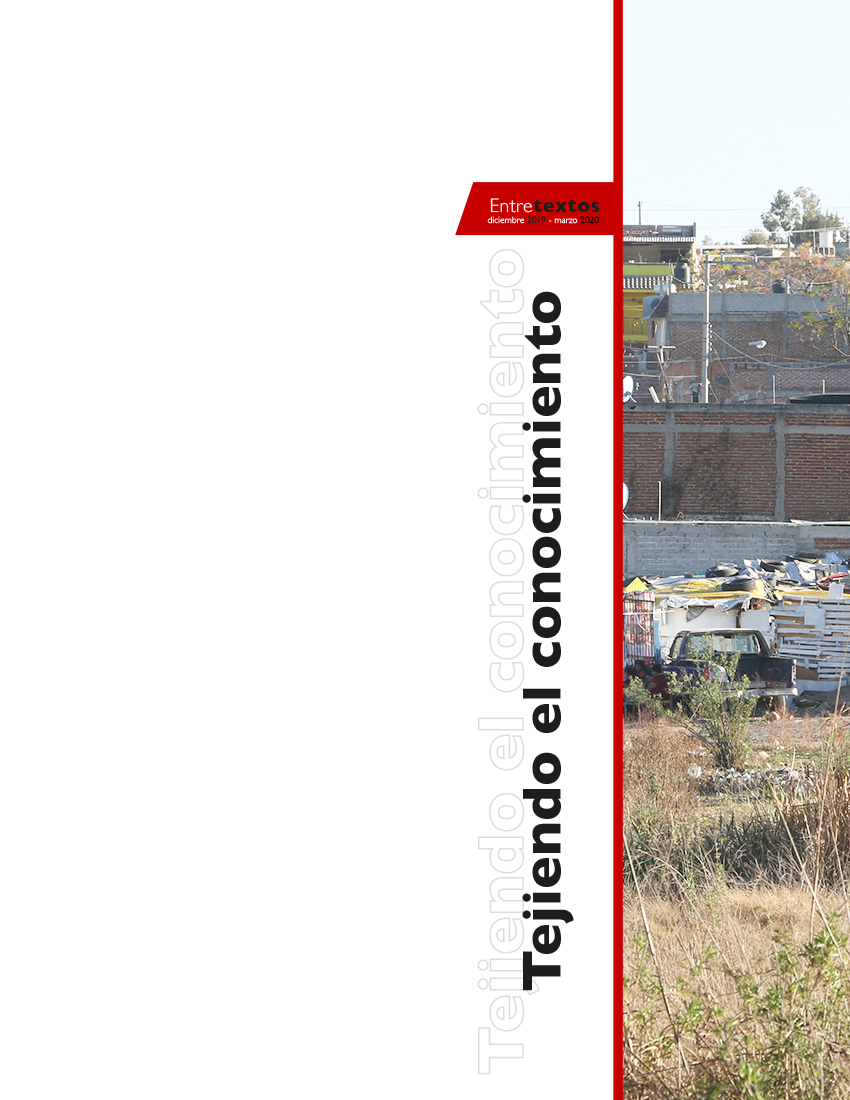Investigation report
Presence of dysphagia and nutritional status in elderly with dementia who assist to the Instituto de la Memoria
DOI:
https://doi.org/10.59057/iberoleon.20075316.201933115Keywords:
dementia, dysphagia, nutritional status, elderly, degree of dementiaAbstract
In Mexico, an 8 % prevalence of dementia has been reported in the elderly population. This disease affects not only the quality of life of people who suffer, but also of their relatives because shocking in the economic, psychological, physiological and social. Patients with dementia have a high probability of develop dysphagia, but those with Alzheimer’s disease you have between 50 and 75 % more risk; without them they can also malnutrition because their nutritional status is altered with age. In this Article presents methodology and results of a descriptive study on dysphagia and nutritional status of patients of the Institute of Memory in order to use the information generated to propose solid strategies for adult food prevention and care Mayor with dementia.
Downloads
References
Baena, M. y Molina, G. (noviembre, 2016). Abordaje de la disfagia en enfermos de Alzheimer. Nutrición Hospitalaria, 33(3), pp. 739-748. Recuperado el 9 de septiembre de 2019, de http://scielo.isciii.es/scielo.php?script=sci_arttext&pid=S0212-16112016000300034.
Boccardi, V., Ruggiero, C., Patriti, A. y Marano, L. (febrero, 2016). Diagnostic Assessment and Management of Dysphagia in Patients with Alzheimer’s disease. Journal of Alzheimer’s Disease, 50(4), pp. 947-55. Doi: 10.3233/JAD-150931.
Bunn, F., Burn, A. M., Goodman, C., Rait, G., Norton, S., Robinson, L., Schoeman, J. y Brayne, C. (octubre, 2014). Comorbidity and dementia: a scoping review of literature. BMC Medicine, 12(192). Recuperado el 23 de septiembre de 2019, de https://www.ncbi.nlm.nih.gov/pmc/articles/PMC4229610/.
Clavé, P., Arreola, V., Romea, M., Medina, L., Palomara, E. y Serra-Prat, M. (2008). Accuracy of the volumen-viscocity swallow test for clinical screening of oropharygeal dysphagia and aspiration. Clinical Nutrition, 27(6), pp. 806-815. Doi: 10.1016/j.clnu.2008.06.011.
Cunningham, E. L., McGuinness, B., Herron, B. y Passmore, A. P. (mayo, 2015). Dementia. Ulster Medical Journal, 84(2), pp. 79-87. Recuperado el 24 de septiembre de 2019, de https://www.ncbi.nlm.nih.gov/pmc/articles/PMC4488926/.
Eglseer, D., Halfens, R. J. G., Schols, J. M. G. A. y Lohrmann, C. (marzo, 2018). Dysphagia in Hospitalized Older Patients: Associated Factors and Nutritional Interventions. The Journal of Nutrition, Health and Aging, 22(1), pp. 103-110. Doi: 10.1007/s12603-017-0928-x.
Guillén-Sola, A., Marco, E., Martínez-Orfila, J., Donaire, M. F., Depolo, M., Duarte, E. y Escalada, F. (diciembre, 2013). Usefulness of the volumen-viscosity swallow test for screening dysphagia subacute stroke patients in rehabilitation income. NeuroRehabilitation, 33(4), pp. 631-638. Doi: 10.3233/NRE-130997.
Instituto de Nutrición Nestlé. (s. f.). Guía para rellenar el Formulario Mini Nutritional Assessment-Short Form (MNA® SF). Recuperado el 23 de septiembre de 2019, de http://www.mna-elderly.com/mna_forms.html.
Kai, K., Hashimoto, M., Amano, K., Tanaka, H., Fukuhara, R., e Ikeda, M. (agosto, 2015). Relationship between Eating Disturbance and Dementia Severity in Patients with Alzheimer’s Disease. PloS One, 10(8). Doi: 10.1371/journal.pone.0133666.
Keller, H. (enero, 2016). Improving food intake in persons living with dementia. Annals of the New York Academy of Sciences, 1367(1), pp. 3-11. Recuperado el 18 de septiembre de 2019, de https://nyaspubs.onlinelibrary.wiley.com/doi/abs/10.1111/nyas.12997.
Leslie, W. y Hankey, C. (julio, 2015). Aging, Nutritional and Health. Healthcare (Basel) , 3(3), pp. 648-658. Doi: 10.3390/healthcare3030648.
Michel, A., Vérin, E., Gbaguidi, X., Druesne, L., Roca, F. y Chassagne, P. (septiembre, 2018). Oropharyngeal Dysphagia in Community-Dwelling Older Patients with Dementia: Prevalence and Relationship with Geriatric Parameters. Journal of American Medical Directors Assocation, 19(9), pp. 770-774. Doi: 10.1016/j.jamda.2018.04.011.
Payne, M. y Morley, J. E. (2018). Dysphagia, dementia and frailty. The Journal of Nutrition, Health and Aging, 22(5), pp. 562-565. Recuperado el 12 de septiembre de 2019, de https://link.springer.com/content/pdf/10.1007/s12603-018-1033-5.pdf.
Paranji, S., Paranji, N., Wright, S. y Chandra, S. (noviembre, 2016). A Nationwide Study of the Impact of Dysphagia on Hospital Outcomes Among Patients with Dementia. American Journal of Alzheimer’s Disease & Other Dementias, 32(1) , pp. 5-11. Recuperado el 18 de septiembre de 2019, de http://journals.sagepub.com/doi/abs/10.1177/1533317516673464?url_ver=Z39.88-2003&rfr_id=ori:rid:crossref.org&rfr_dat=cr_pub%3dpubmed.
Robinson, L., Tang, E. y Taylo, J. P. (junio, 2015). Dementia: timely diagnosis and early intervention. BJM (Clinical research ed.), 350. Recuperado el 23 de septiembre de 2019, de https://www.ncbi.nlm.nih.gov/pmc/articles/PMC4468575/.
Rofes, L., Arreola, V. y Clavé, P. (2012). The Volume-Viscosity Test for Clinical Screening of Dysphagia and Aspiration. En Cichero, J. y Clavé, P. (Eds.), Stepping Stones to Living Well with Dysphagia (pp. 33-42). Recuperado el 21 de septiembre de 2019, de http://pdfs.semanticscholar.org/fc8f/39b496a1031344880c0b2d95139f465351ce.pdf.
Sura, L., Madhavan, A., Carnaby, G. y Crary, M. A. (julio, 2017). Dysphagia in the elderly: management and nutritional considerations. Clinical Intervetions in Aging, 7, pp. 287-298. Recuperado el 20 de septiembre de 2019, de https://www.ncbi.nlm.nih.gov/pmc/articles/PMC3426263/.
Takeuchi, K., Aida, J., Ito, K., Furuta, M., Yamashita, Y. y Osaka, K. (abril, 2014). Nutritional status and dysphagia risk among community-dwelling frail older adults. The Journal of Nutrition, Health and Agin, 18(4), pp. 352-357. Doi: 10.1007/s12603-014-0025-3.
Tombini, M., Sicari, M., Pellegrino, G., Ursini, F., Insardá, F. y Di-Lazzaro, V. (octubre, 2016). Nutritional Status of Patients with Alzheimer’s Disease and Their Caregivers. Journal of Alzheimer’s Disease, 54(4), pp. 1619-1627. Doi: 10.3233/JAD-160261.
Yildiz, D., Buyukkoyuncu, N., Kilic, A. K., Tolgay, E. N. y Tufan, F. (2015). Malnutrition is associated wih dementia severity and geriatric syndromes in patients with Alzheimer disease. Turkish Journal of Medical Sciences, 45(5), pp. 1078-1081. Recuperado el 26 de septiembre de 2019, de http://journals.tubitak.gov.tr/medical/issues/sag-15-45-5/sag-45-5-14-1406-76.pdf.

Downloads
Published
How to Cite
Issue
Section
License
Copyright (c) 2019 Entretextos

This work is licensed under a Creative Commons Attribution-NonCommercial 4.0 International License.




